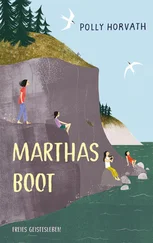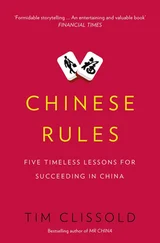“But no blood, right?” Ariana’s joined him at kid level. And the kids are disentangled, Esther leaping into her mom’s arms.
Esther’s mother gives them a withering look as she pulls Esther away. No thank you, no nothing.
Ariana says, “See what I told you?” to Hanh, but she and Pete are unable to contain themselves at how uptight Esther’s mom is and, by extension, Esther, although the girl was kind of a good sport about it, the more Pete thinks about it.
This time, they exchange information and agree to get together for coffee and, as Pete puts it, “to discuss the stingray situation.” She leans in and whispers to him, “You handled that really well.” In the car on the way to her mom’s Sasha says, “Was that Hanh’s fault or Esther’s fault or nobody’s fault?” He realizes that she was taking it all in, and while he might be lying he doesn’t feel guilty when he says, “You know, that one, I think, nobody was to blame.”

That November, they start getting together for coffee. Hanh is in afternoon kindergarten, and Pete splits his days between a couple of not-yet-expired contracts in the area and Angus’s latest projects, as well as getting really adept at the game Docent, which involves leading tour groups around a museum where the works of art come violently to life and do things that might occur in an anxious art history major’s nightmares. He’s reached the Guernica screen, which is basically like an animated version of the painting, unlike some of the earlier ones, which are more liberally embellished, such as Botticelli’s Venus having laser-beam eyes. The cool thing is that you actually learn a tiny bit about art and leadership while you are playing.
But to say that he’d rather be talking to Ariana is the understatement of the century. She’s lived not only in Bolivia but all over — New York, Nepal, Oregon, a year in Austria. Places he has seen on television, places he assumed he and Bethany would travel one day. Ariana’s been a model, the main squeeze of a sommelier, raised reptiles. He’s about to ask her whether she’s worked as a docent, but nixes the impulse.
She’s been almost married herself twice — once he backed out; once she did. Such balance! After the second thing went up in smoke, she decided she wasn’t going to wait anymore and started looking into adoption. At first, she planned to adopt a Bolivian child — she’d visited an orphanage or two while she was down there — but the restrictions were massive, the laws byzantine. As in adoption in general, especially for a single woman. If she’d wanted to adopt from Korea, for instance, she’d have to have been married for three years. Hanh was almost two when she brought him back from Hanoi. The conditions there were far from terrible, but she suspects he may have witnessed some troubling things. He’s supersmart but loud and fast, and he has these strange impulses that she doesn’t understand, can only speculate where they come from.
“I always find myself picturing his parents,” she says. “I wonder what I was doing at the very moment she started her contractions. At the moment she signed the papers to hand him over.”
He’s never thought about it, what it would mean to give up Sasha entirely. It seems inconceivable. He could give up Bethany, but as for Sasha, this hand, the one tilting this mug, he’d lose first. He wants to tell her that being assured you are the genetic parent of your child doesn’t clear up all the mysteries, not by a long shot.
Yet speaking of mysteries, something peculiar takes place when Hanh and Sasha hang out — they play so harmoniously, slipping in and out of costumes and roles and letting the other be when needed, it’s uncanny. It’s like Sasha is Hanh’s long-lost twin. Ariana invited them over one Saturday, and the kids were off playing in Hanh’s room, and there was such a stretch of quiet that at some point Pete and Ariana broke off, stood in unison, and raced upstairs, bracing for the worst. When they opened the door, Sasha was frozen, balancing some sort of lizard on her arm, Hanh stroking its back. The lizard’s stillness made it look like a toy, and when it arched its neck, and its tongue darted, he was convinced it was the world’s coolest toy, something Angus would come up with. Back downstairs, they tried to fathom what strange forces were at work.
“Spells are being cast,” insisted Ariana. “Who is she, and what has she done with Hanh?”
“Her ‘Please’ and ‘Thank you’ without me holding up billboard-size cue cards?”
“The dregs of his Halloween candy? The sixty-forty split?”
The first time Pete and Ariana kiss, they are alone together in her apartment, Hanh still at school and Sasha with Bethany — but they both glance toward Hanh’s room. It’s usually so placid in there that it takes conscious effort to remember that they’re not there. It gives her a chance to remind him she’s not looking to move too quickly. Not with her track record; not while she’s still getting feet planted. That’s quite okay by Pete, who isn’t exactly ready for anything precipitous himself. Without the ring, he still feels a touch naked, occasionally still reaches for Bethany in the night. Once he got up and went to where in his little apartment Sasha’s room would’ve been in relation to their bedroom in the old house, and he stood there, staring at his closet for untold minutes before recognizing where he was. This is something akin to the disorientation he feels as he and Ariana kiss.

Of course he can watch Hanh for a day while Ariana has a chance to go to an all-day conference on mycopharmacology, “(Much) Room for Growth.” Why do they hold conferences in the dead of December? he wonders. Same nonsense goes on in the copy industry. The conference is just an hour or so away, and she could try taking Hanh, but she’s got a couple of interviews lined up. Hanh is fine with spending the day with Sasha and Pete. As long as it’s not too much of an imposition.
“On the contrary,” says Pete, “Sasha will be ecstatic.” Already he is imagining the greatness of the day he will provide, one that Hanh will look back on fondly decades hence. He’ll buy new art supplies, a simple yet award-winning board game. He’ll have to charge these items and may still be paying them off when Hanh is reminiscing, but so be it.
He’s just added puppets to the list when Angus calls. Forget the energy drinks, Angus says. He’s got something more pragmatic, something where they won’t have to rely too much on scientific breakthroughs that might or might not be nigh. “Vacation Redux,” he calls it. He doesn’t want to reveal the essence of it until he is over there in Pete’s presence. “Just like you wouldn’t propose to a woman — or, I suppose, in this day and age, a man — over the phone, you wouldn’t propose a business plan over the phone. Not one of this till-death-do-us-part magnitude, certainly.”
“I’ve got Sasha today,” Pete says.
“That’s fine. I’d love to see my li’l niece. In fact, we’ll get her input on this one. It’ll be perfect. She’s part of our target demographic. As in everybody !”
“I’m watching another kid, too,” Pete adds.
“Well, well, well, Superdad,” he says. “One not enough for you? Got to be like Dad and have multiple balls in play at once?” Their father had played sports like tennis, Ping-Pong, even baseball this way, with two and upwards balls at a time. He called it “multiball,” and introduced this way of playing to colleagues, neighbors, prospective investors. Dripping with sweat, he’d call the boys in and give a little speech about how beneficial it was for dexterity, mentally and physically strenuous and thus rewarding, not to mention more in keeping with the way the solar system operated, with its host of comets and interplanetary bodies.
Читать дальше













